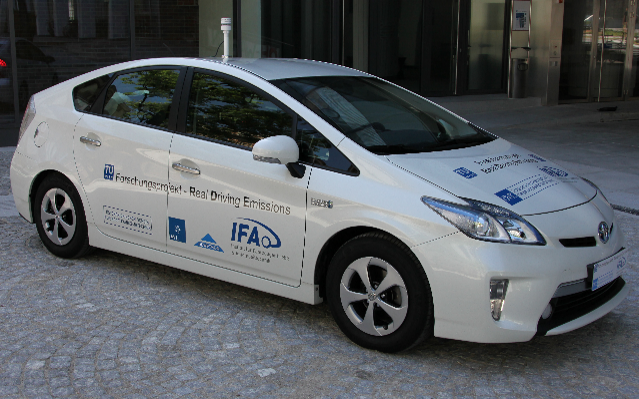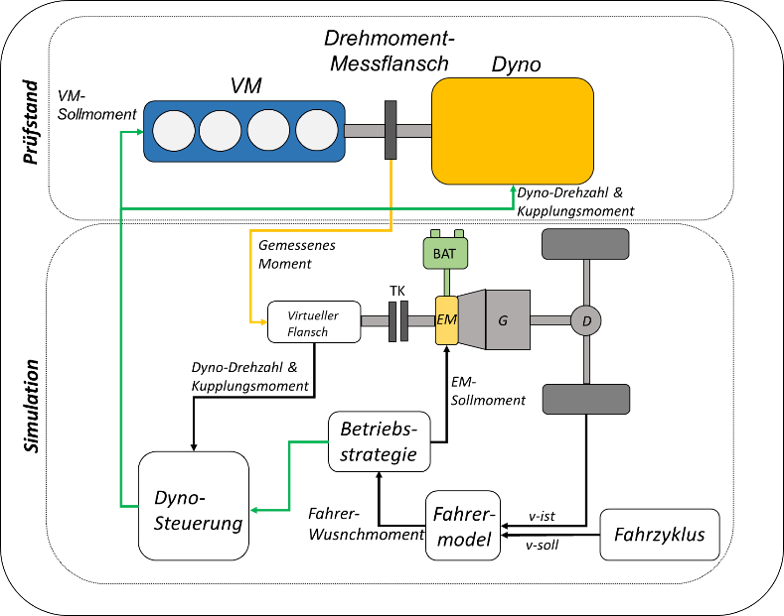Electrified powertrains are necessary to meet European fleet consumption targets. Hybrid vehicles combine an internal combustion engine and an electric motor in the powertrain and through their interaction, CO2 and other emissions can be minimized. Depending on the size of the battery and voltage level, several concepts are available: ranging from micro hybridization, which allows partial use of braking energy and support of the vehicle by the electric motor, to plug-in hybrid vehicles that can cover longer driving distances purely electrically.
The complex interaction of the components of a hybrid powertrain is modeled and optimized at the institute using longitudinal dynamics simulations. Using modern optimization algorithms, it was possible to design concepts that show lowest possible energy demand. Boundary conditions such as the heat demand of the interior or the thermal management of the exhaust systems were considered as well. Real-time capable models and fast braking technology allow the model to be coupled with an engine operated on the test bench (engine-in-the-loop).
Purely electrically powered vehicles will gain in importance in the future, at least in individual transport. Central components are the high-voltage battery and the electric drive unit. Both components are being researched at the institute.
Experimental aging tests were carried out on Li-ion cells at defined outside temperatures using a specifically developed immersion tank. The derived aging models were deployed in the control unit of a vehicle, resulting in a direct benefit for drive development.
As part of a current research project, a novel high-performance cooling system for the stator is being developed for a compact motor (axial flux machine) with high torque density. Component production and assembly of the prototype were carried out at the institute. Investigations on the engine test bench verified the potential of the hybrid powertrain in terms of fuel consumption savings and emission reductions.
Contacts:
Assoc.Prof. Dr. Peter Hofmann
Phone: +43 1 58801 31576
peter.hofmann@ifa.tuwien.ac.at
Univ.Ass. Dr. Johannes Konrad
Phone: +43 1 58801 31578

